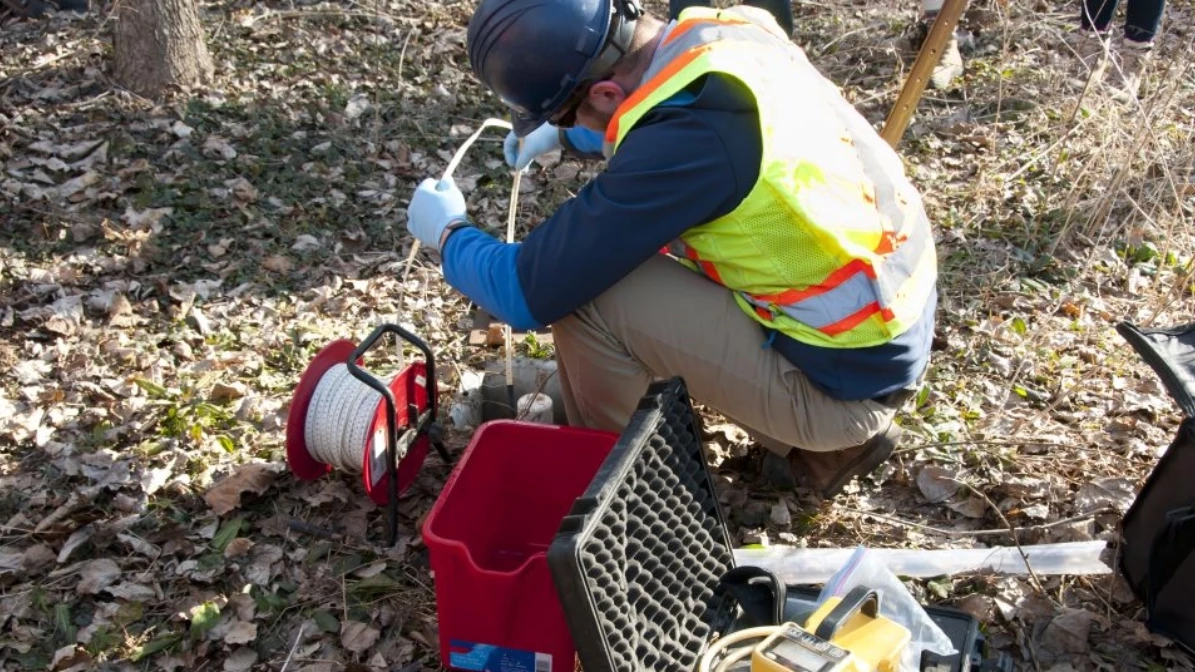When purchasing a property, there are countless factors to consider—location, price, structural integrity, and, of course, the overall condition of the water supply system. For properties that rely on wells for water, conducting a well inspection is a crucial part of the home-buying process. A well inspection is not only about checking if the water flows; it can uncover hidden issues that could impact both your health and your wallet down the road.
Whether you are a first-time homebuyer or a seasoned real estate investor, knowing how a well inspection can reveal underlying issues in a property can help you make informed decisions and avoid costly surprises. From the condition of the well’s infrastructure to the quality of the water, a thorough inspection can provide essential insights into a home’s water system and its history.
How Can a Well Inspection Reveal Hidden Issues in a Property?
A well inspection can act as a diagnostic tool, helping you uncover problems that might not be immediately visible or obvious during a routine home inspection.
Unlike municipal water systems, which are managed and maintained by the city or county, private wells are the responsibility of the property owner. This means that any issues with the well may not be obvious to the untrained eye, especially if the system has been in place for many years.
1. Identifying Structural Integrity Issues
The well’s infrastructure itself is one of the first things that an inspector will evaluate. Over time, well casings and pipes can corrode, crack, or become damaged, allowing contaminants to enter the water supply. Even if the well is currently providing water, small cracks or weaknesses in the casing may indicate a risk of contamination that could affect the quality of the water.
In some cases, a well inspection can uncover issues related to the depth of the well or the condition of the pump. A poorly installed or improperly maintained pump can result in unreliable water pressure or intermittent access to water, which can be both inconvenient and costly to fix. Additionally, the inspector will check for proper filtration systems, ensuring that the water meets the necessary health and safety standards.
2. Assessing Water Quality
One of the most critical aspects of a well inspection is testing the water quality. Unlike public water systems, which are routinely tested for safety, private wells require periodic testing to ensure the water is free of contaminants. Poor water quality can result from various factors, including the presence of bacteria, nitrates, pesticides, and heavy metals.
An inspector will collect water samples to check for contaminants that could pose a risk to your health. If any issues are found, such as high levels of bacteria or pollutants, this could signal larger problems with the well’s filtration system or potential contamination from nearby septic systems or agricultural runoff. Identifying these problems early on can prevent costly and hazardous situations in the future.
What Information Does a Well Inspection Provide About a Home’s History?
A well inspection doesn’t just assess the current state of the water supply; it can also provide insight into the property’s history and previous maintenance practices. Here are a few aspects of a home’s history that a well inspection can reveal:
1. Well Age and Maintenance History
During the inspection, the well’s age is often documented, and any available records on its maintenance history are reviewed. Older wells may require more frequent repairs or upgrades, especially if they haven’t been properly maintained over the years.
For example, the installation of a new pump or filtration system might indicate that previous owners have been proactive about maintaining the well, while a lack of upgrades could suggest neglect.
Understanding the well’s maintenance history can help you anticipate future repair needs or upgrades. If the previous owner didn’t take proper care of the well, you may be faced with more immediate expenses to bring the system up to standard.
2. Potential for Environmental Impact
A well inspection can also reveal the environmental factors that might have influenced the well’s water quality in the past. For example, if the well is located near a septic system or agricultural land, there may have been previous concerns regarding contamination from nearby sources. The inspection can help determine if these issues were addressed properly or if they could still be a potential threat to water quality.
Historical issues with water quality—such as previous contamination from nearby industrial activities or environmental damage—could have long-lasting effects on the well, making it essential to assess how the well has been impacted by its surroundings over time.
Why Is It Important to Inspect a Well Before Buying a Property?
A well inspection should never be overlooked during the home-buying process, especially if the property relies on a private well for water. Here’s why it’s important to have the well inspected before committing to a purchase:
1. Ensuring Reliable Water Supply
The most obvious reason to inspect a well before buying a property is to ensure that you’ll have a reliable and safe water supply. A well inspection will verify that the well can provide the required amount of water to meet the household’s needs, whether it’s for daily use or irrigation. Without an inspection, you could unknowingly purchase a property with an unreliable or inadequate water supply, leading to problems down the line.
Additionally, the inspection will check that the water pressure is sufficient and that the system is functioning properly, so you can avoid surprises when you move in.
2. Avoiding Costly Repairs
Buying a property with a well that has hidden issues can lead to costly repairs, many of which may not be covered by homeowners insurance. For instance, if the well has a faulty pump, corroded pipes, or is in need of a new filtration system, you could be facing thousands of dollars in repair costs.
Having a professional well inspection gives you the knowledge to negotiate with the seller or adjust your offer based on the repairs that may be needed. It also provides you with the opportunity to factor the cost of necessary repairs into your overall budget before purchasing the home.
3. Protecting Your Health and Safety
Water safety should always be a priority when purchasing a home, and a well inspection plays a crucial role in protecting your health. Without proper testing, you may unknowingly purchase a property with unsafe water—putting you and your family at risk for waterborne diseases or long-term health issues caused by contaminants.
A professional well inspection ensures that the water is safe to drink, cook with, and use for bathing. If contamination is found, you’ll be able to address the issue before it becomes a health hazard. Identifying potential problems early can prevent costly and dangerous consequences in the future.
What Problems Can Be Uncovered During a Professional Well Inspection?
A professional well inspection can uncover a range of problems, from minor maintenance issues to serious health hazards. Some of the most common problems that a well inspection might reveal include:
1. Contaminated Water Supply
One of the most concerning problems a well inspection can uncover is water contamination. Bacteria, viruses, nitrates, and heavy metals can all make their way into the water supply, especially if the well is located near a septic system, livestock, or other pollution sources. Contaminated water can pose serious health risks, including gastrointestinal illness, skin rashes, and even long-term health issues.
2. Faulty Well Pump
A malfunctioning or outdated well pump can significantly reduce the effectiveness of your water supply. A well inspection will check the pump’s condition, ensuring it’s functioning properly and providing the correct amount of water pressure. If the pump is found to be faulty or inefficient, it will need to be repaired or replaced.
3. Poor Well Construction
Older wells or those that were poorly constructed may have issues with the well casing, which protects the water from surface contamination. Cracks, leaks, or other structural issues with the casing can lead to water contamination or a loss of water pressure.
4. Sediment Build-Up
Over time, sediment can build up in the well, affecting water flow and potentially clogging the filtration system. A well inspection will check for sediment build-up and ensure that the well’s filtration system is functioning properly.
Ensure Safe and Reliable Water with a Professional Well Inspection from Well Doctor LLC
If you’re buying a property with a well, don’t overlook the importance of a professional well inspection. At Well Doctor LLC, our experienced team provides thorough, reliable well inspections to ensure your water supply is safe, reliable, and in top condition. We help you identify potential issues before they become costly problems, giving you peace of mind knowing your new home’s water system is ready to go.
Contact Well Doctor LLC today to schedule your well inspection and ensure that your property’s water supply is safe, healthy, and efficient.

